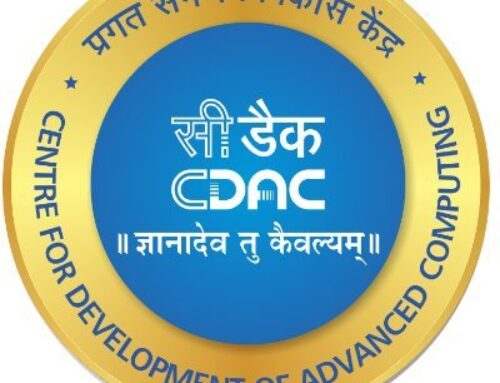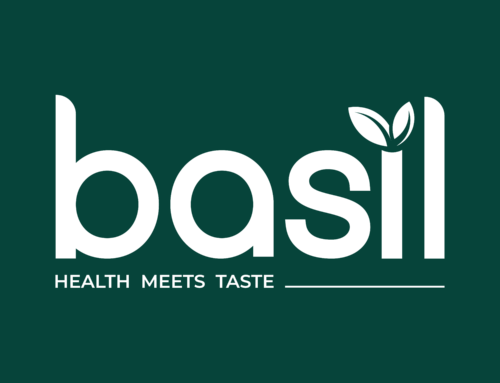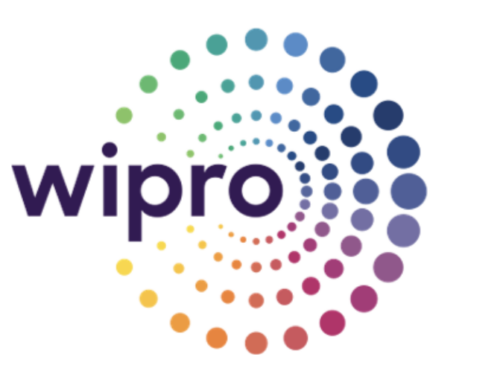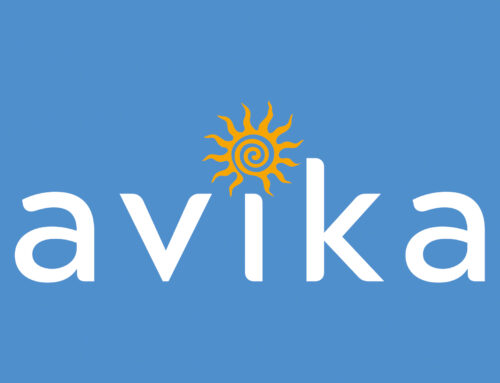
Rangeet uses playful learning methods and the understanding of multiple intelligences to teach in the way different brains think and learn. But the curriculum is structured in a manner that aligns to the Indian National Education Policy, 2020 and to the National Curriculum Framework, 2023.
Read on to find out how, from its Content (where we identify skills and values prioritised in the National Education Policy and map the content of Rangeet to these specific skills and values) to its Pedagogical Approach (where we map the pedagogical techniques embedded in the Rangeet curriculum to those suggested in the National Education Policy and National Curriculum Framework).
Content
Competence in social emotional skills can help bridge the gap in educational inequalities worsened by disruptive events, such as the pandemic or any humanitarian crisis. A 2017 Collaborative For Academic, Social and Emotional Learning (CASEL) study indicates that SEL interventions can support the positive development of students regardless of race, socioeconomic background, or geographical contexts. The World Economic Forum has reported that the top ten skills required in the workforce all involve social and emotional competence (Future Jobs Report, WEF) and according to the CASEL study, 92% of executives surveyed agree.
National Education Policy, 2020
The National Education Policy, 2020, ‘aims to address the many growing developmental imperatives of our country’. While the NEP 2020 addresses structural issues in the education system, it also outlines various capacities that students must develop as they complete their journeys through school. Under the heading ‘Curricular Integration of Skills and Values’ the policy mentions that ‘While students must have a large amount of flexibility in choosing their individual curricula, certain subjects, skills, and capacities should be learned by all students to become good, successful, innovative, adaptable, and productive human beings in today’s rapidly changing world.’
Rangeet Modules Mapped to NEP
Aligned to expectations set under the section ‘Curriculum and Pedagogy in Schools: Learning Should be Holistic, Integrated, Enjoyable and Engaging’:

Holistic Development of Learners
The NEP 2020 puts forward the idea that education must be holistic – ‘Education must build character, enable learners to be ethical, rational, compassionate, and caring, while at the same time prepare them for gainful, fulfilling employment.’ In order to achieve this, schools must find space and time to help students engage with topics outside the core subject-specific syllabus.
Rangeet hopes to assist in these efforts by providing teachers with modules that address tricky, yet important, topics such as inequity, discrimination, and environment degradation. The modules are presented through easy to use lesson plans that will not require teachers to put in too much preparation time. The curriculum consists of 3 umbrellas:
- Self
- Society
- Ecology



Focus on Health, Wellness, and Physical & Mental Wellbeing
The NEP asks for basic training in physical health, mental health, and good nutrition to be included in the curriculum. The Rangeet curriculum addresses these issues under the ‘Self’ umbrella through the following modules:
- Mindfulness – This module deals with the importance of Mindfulness, a mental state achieved by focusing one’s awareness on the present moment, while calmly acknowledging and accepting one’s feelings, thoughts and bodily sensations. It also deals with traits that are important to develop skills such as resilience and growth mindset.
- Health is Wealth – This module deals with the value of physical health – exercising, playing outside, eating right, but importantly it also discusses mental health. Children learn to understand there is no shame in addressing mental health issues. They are equipped with tools to identify mental health issues in themselves and those around and to ask for help. By looking after their bodies and minds, children will be able to maintain the best possible version of themselves.


Citizenship & Constitutional Skills & Values
“The school curriculum will include, early on, material on human values such as respect for all persons, empathy, tolerance, human rights, gender equality, non-violence, global citizenship, inclusion, and equity.”
Rangeet’s umbrellas on ‘Society’ and ‘Self’ invite students to learn more about rights, duties and values such as respect and equality:
- You’re the Voice – In this module, children learn about their rights, as well as the rights of others who are often overlooked; such as the elderly, the disabled and animals. In order to have one’s rights respected, it is important to understand and respect the rights of others.
- I Am India – This module deals with the different kinds of diversity that our children see in India. It also covers five types of discrimination that arise from these areas of diversity. As a group the children and the teacher will come up with potential solutions to these issues.
- No Bully – In this module, children are introduced to the five kinds of bullying that exist in their environment. The children and the teachers will come up with solutions to solve bullying.
- Girls=Boys – This module will discuss the protection and celebration of the girl child, the importance of positive masculinity, education and personal safety of all genders.




Environmental Awareness
“Environmental awareness including water and resource conservation, sanitation and hygiene; and current affairs and knowledge of critical issues facing local communities, States, the country, and the world.”
The third umbrella of Rangeet, ‘Ecology’, is dedicated to Environmental Awareness. Under this umbrella, there are 3 modules:
- Song of a Tree – This module deals with the vital role trees and plants play in the sustainability of all life on earth. Students learn about food chains, webs, and all the actors that are part of ecosystems and habitats in the world around us.
- Earth Positive – This module teaches children about the forces impacting the balance of nature that can have far reaching consequences and risk our way of life. It informs children that nature and ecosystems have value and learning this is the only way we will truly protect all life on Earth.
- Heal Our Planet – In this module, students discuss what happens to our waste and outline specific examples of air and water pollution on our planet. They discuss the 3Rs (Reduce, Reuse, Recycle) and talk about ways in which we can individually and collectively conserve, restore and regenerate vital ecosystems.



Pedagogical Approach
National Education Policy, Experiential Learning
The NEP 2020, outlines different ways in which curricula and learning experiences for students need to change. An important consideration among these priorities is the provision of experiential learning. ‘In all stages, experiential learning will be adopted, including hands-on learning, arts-integrated and sports-integrated education, story-telling-based pedagogy, among others, as standard pedagogy within each subject, and with explorations of relations among different subjects.’ According to the Centre of Teaching & Learning at Boston University, experiential learning is ‘an engaged learning process whereby students “learn by doing” and by reflecting on the experience.’ This includes engaging in experiences related to the learning outcome, reflecting on that experience and relating those reflections to theoretical concepts.
Rangeet’s curriculum is built on the idea of experiential learning. Each module includes activities that allow students to experience the concept being discussed using a variety of media such as music, art, and dramatics. The curriculum also leverages homework by asking students to go back home and engage with the theoretical idea. For example, the Ecology umbrella consists of several experiments that help students see concepts that often remain too theoretical (such as the effect of global warming on glaciers). Similarly, when exploring the inequity between boys and girls under the Society umbrella, students are asked to collect the opinions of their parents and siblings on how different professions relate to gender.



National Curriculum Framework
The National Curriculum Framework 2005, sets guidance for how and what students should learn in order to ‘make sense of life and develop their potential, to define and pursue a purpose and recognise the right of others to do the same.’ Based on the aims and goals set out in the document, the framework lists some ‘Implications for Curriculum and Practice’. Below, we outline those implications that relate directly to Rangeet.
Teaching for Construction of Knowledge: In its opening chapter, the NCF states ‘The impulse to teach everything arises from lack of faith in children’s own creative instinct and their capacity to construct knowledge out of their experience.’ Construction of knowledge refers to learning experiences through which students are able to connect new and existing ideas. Experiential Learning, as stated in the section on the National Education Policy, is a type of pedagogy that allows for construction of knowledge. When talking about construction of knowledge, the NCF also emphasizes the role of social interactions – it talks of the importance of collaborative learning between students that can facilitate an exchange of varying ideas and the construction of diverse and deep learning. ‘Active engagement involves enquiry, exploration, questioning, debates, application and reflection, leading to theory building and the creation of ideas/positions.’
Each module in Rangeet allows for these different experiences – from enquiry through discussions, reflections and projects to exploration through discussions with peers and family. The curriculum stems from the belief that children, when given the right opportunities, can use their perceptions of the world to create rich insights and that the connections they build themselves lead to meaningful learning.



Value of Interactions
‘Learning takes place through interactions with the environment around, nature, things and people, both through actions and through language. The physical activity of moving, exploring and doing things, on one’s own, with one’s peers or in the company of adults, and using language — to read, to express or ask, to listen and to interact — are the key processes through which learning occurs.’ More often than not, learning in classrooms takes place individually, with students taking in information through their books or teachers. However, the NCF emphasises on the importance of interactions in the process of learning. These interactions, it states, are not limited to those between children or them and their families, but also between children and the environment around them.
The modules in the Rangeet curriculum employ several different activities that involve interactions. Some activities, such as role plays revolving around the topic being discussed, are built into every module while others, such as book discussions, are used in specific modules. These kinds of activities focus on interactions between students. Most homework activities included in the modules create opportunities for the students to interact with their families and neighbours, interviewing them and learning about their perspectives on the topic being discussed at school. All modules under ‘Ecology’ involve students going out in nature and exploring their surrounding environments.



Critical Pedagogy
The NCF states that ‘Students are not just young people for whom adults should devise solutions. They are critical observers of their own conditions and needs, and should be participants in discussions and problem solving related to their education and future opportunities.’
Rangeet stands by this belief and each module, especially those that help students explore social ills, are designed to include the voices of the students themselves. Instead of using a lecture based approach in which teachers preach to students about issues like inequality, bullying, and environmental distress, the modules employ various activities so students can create their own understanding of the issues by reflecting on their own experiences and experiences of those around them.



High Quality Learning Experiences
Another concept highlighted in the National Curriculum Framework is that of providing students with learning experiences that are high quality and that allow students to be at the centre. As outlined above, each Rangeet module has been created with this idea in mind. While Rangeet is not a teacher development programme, the modules provide rationales for the use of different kinds of pedagogical techniques. Once teachers begin to use these methods for Rangeet, the techniques can easily be transferred to different subjects.
The National Curriculum Framework also lays out a checklist of some approaches to knowledge that should be considered when designing curricula:

Link to Subject-Specific Teaching
While Rangeet is designed as a full Social-Emotional and Ecological knowledge curriculum, parts of the curriculum can also be used as resources for subject-specific teaching:
Subject: Language Development
Approach:
Exposure to Material
Rangeet Material:
- Modules suggest children’s books related to different topics such as the environment and equity.
- Modules have unique songs that can also be used for building language.
- Modules have stories that can be used as additional texts.
Approach:
Through Different Subjects
Rangeet Material:
‘Language education is not confined to the language classroom… learning a subject means learning the terminology, understanding the concepts, and being able to discuss them critically’ (NCF, pg. 38).
- While the 9 modules are not direct language development modules, each of them provides students with the opportunity to explore those topics through interaction with peers and family, express themselves in their language of preference or through other means such as art and music.
- Any of these activities can be picked up for language development classes – for example, parts of the song ‘Heal Our Planet’ can be used to help build vocabulary or its performance can help build confidence on stage.
Approach:
Reading & Writing with Understanding
Rangeet Material:
‘Children appear to learn much better in holistic situations that make sense to them rather than in a linear and additive way that often has no meaning.’ (NCF, pg. 40).
- Several activities from the Rangeet curriculum can be used as reading and writing activities that are closely connected to the children’s own lives and experiences.
- For example, the activity from module No Bully asks students to write down three kind things about their partner – this activity can be used in isolation as a writing prompt for different writing levels.
Subject: Science
Approach:
Environmental Validity
Rangeet Material:
‘Environmental validity requires that science be placed in the wider context of the learner’s environment’ (NCF, pg. 48).
- The Ecology umbrella in Rangeet provides teachers with a variety of activities and experiences that can help bring environmental validity to the teaching of certain scientific phenomena.
- For example, calculating their own carbon footprint through their daily activities in the module Earth Positive.
Approach:
Environmental Studies
Rangeet Material:
- The NCF states that at the primary level, science and social studies should be combined as ‘environmental studies’ with ‘health’ being an important component.
- The umbrella, ‘Ecology’, in Rangeet can be used on its own as a supplement to Environmental Studies lessons in school.
- The umbrella covers three modules as detailed earlier in the document, including one on physical and mental health.
Approach:
Active Approach to Science
Rangeet Material:
‘We must encourage alternative textbook writing in the country within the broad guidelines laid down by the NCF. These textbooks should incorporate activities, observation and experimentation, and encourage an active approach to science, connecting it with the world around the child’ (NCF, pg. 49).
- As outlined in earlier sections, Rangeet modules align closely with the principles set out in the NCF and can be used as a resource in the development of science textbooks.
Subject: Social Science
Approach:
Analysing Socio-Political Realities
Rangeet Material:
- Describing the aim of social science education, the NCF states that it should teach children to analyse the realities around them rather than merely memorising facts.
- The umbrella, ‘Society’, under Rangeet is aimed at building such analysis skills through interviews, reflections and observations and can be used as supplementary material in Social Science classes.
Approach:
Focus on Preservation in Environmental Studies
Rangeet Material:
- From classes 3 to 5, the NCF suggests that Environmental Studies focus on the urgency of preservation of the Earth.
- Modules ‘Heal the Planet’ and ‘Earth Positive’ under the umbrella, ‘Ecology’, are focused on preservation.
- The Ecology modules aim to make big ideas more accessible, real and relevant to the students so they can connect them to their lived experiences.
Approach:
Reflect Social Realities
Rangeet Material:
- The NCF also states that when teaching social science, teachers need to take an open ended approach that allows students to explore different dimensions of social realities.
- The modules under the umbrella, ‘Society’ are perfectly suited to be a resource that helps teachers begin such discussions in their classrooms.
- The module gives teachers simple activities, additional reading material, and prompts to begin and support such conversations with their students.
Subject: Education for Peace
Approach:
Less talk, more discussion
Rangeet Material:
- The framework dedicates a section to Education for Peace, citing its importance in today’s day and age.
- It is recommended that these lessons draw children into discussion, rather than impose set notions of right and wrong.
- As detailed above, the Rangeet curriculum is built around students analysing, exploring and constructing their own knowledge and points of view.
- Teachers can use the Rangeet curriculum as a collection of various resources that can help them engage students in deep discussion. For example, each module contains a role play activity that pulls students into exploring various perspectives of an issue.
Approach:
Activities for Peace Awareness
Rangeet Material:
- The NCF suggests a few activities teachers can use to build peace awareness in students (pg. 61).
- One of the suggested activities, Overcome Injustice with Justice, asks students to identify a few injustices and explore why they exist and how it makes them feel.
- The modules under ‘Society’ contain activities that can be used to help students think about injustices in more detail.
- These activities can also be used as standalone activities along with the main lesson the teacher is running.
- For example, the song I am India in the module ‘I am India’ and the activity ‘If I Didn’t Have Equal Rights’ in the module ‘Girls = Boys’.
Approach:
Plurality and Alternative Materials
Rangeet Material:
- The NCF suggests that schools use a variety of materials to supplement each other while teaching students (pg. 94).
- While standard textbooks may exist in schools for most of the material, the Rangeet curriculum can act as such a supplement.
- Additionally, the way the modules are designed, will allow teachers to develop a nurturing environment that helps children learn in a meaningful way.
Suggestions for Further Alignment
- Habitat & Learning – The NCF suggests that environmental education be clubbed with all kinds of subjects – even beyond Science. For example, while engaging in a math lesson it suggests that students look at long term data to identify the decrease in rainfall. Creating a pool of such activities for each subject area will help build Rangeet’s curriculum as a stronger resource.
- Assessment & Evaluation: With a strong focus on formative assessments in the NCF, Rageet’s curriculum is in a good position to offer a roadmap of how to use everyday activities as a form of assessment that informs the teaching & learning process instead of merely evaluating the student. While the curriculum currently includes examples of such activities, since they are specific to the curriculum, it’s difficult to offer this as an alignment area (since teachers cannot pick it up and use it in something else). Instead, just creating a simple document explaining how the curriculum looks at assessment, offering different activities as examples and then deconstructing them so that teachers can adapt them will create a very useful resource.







